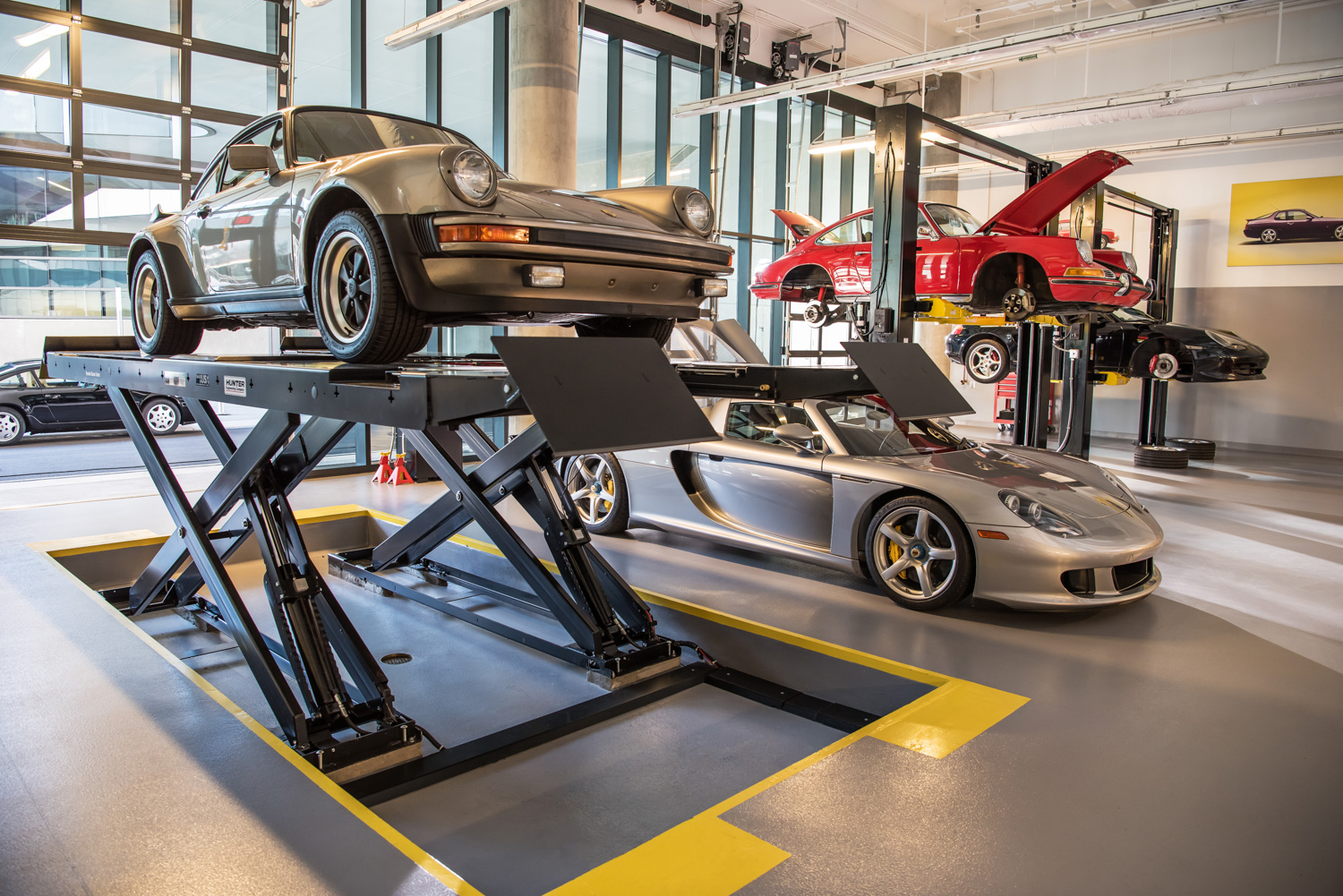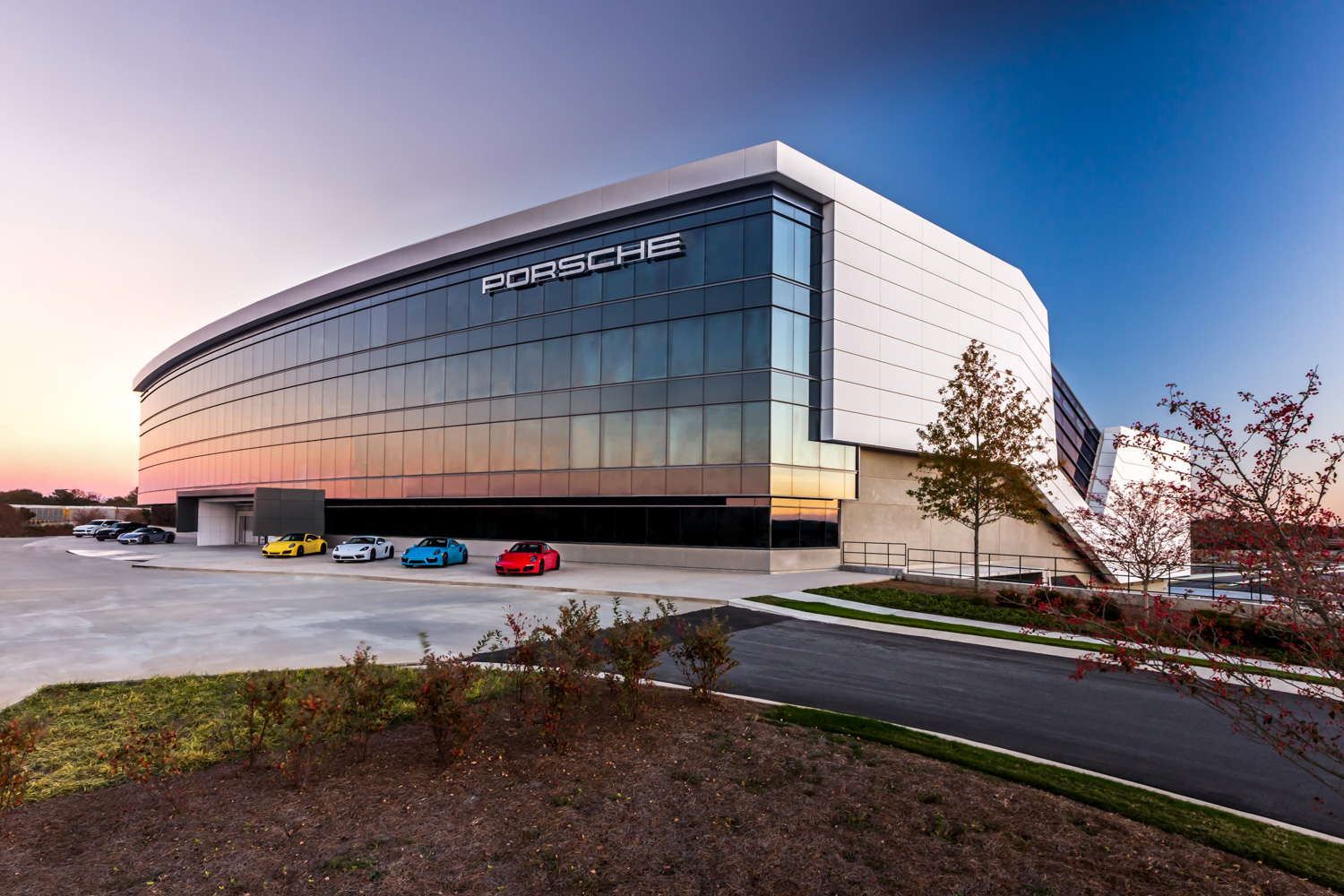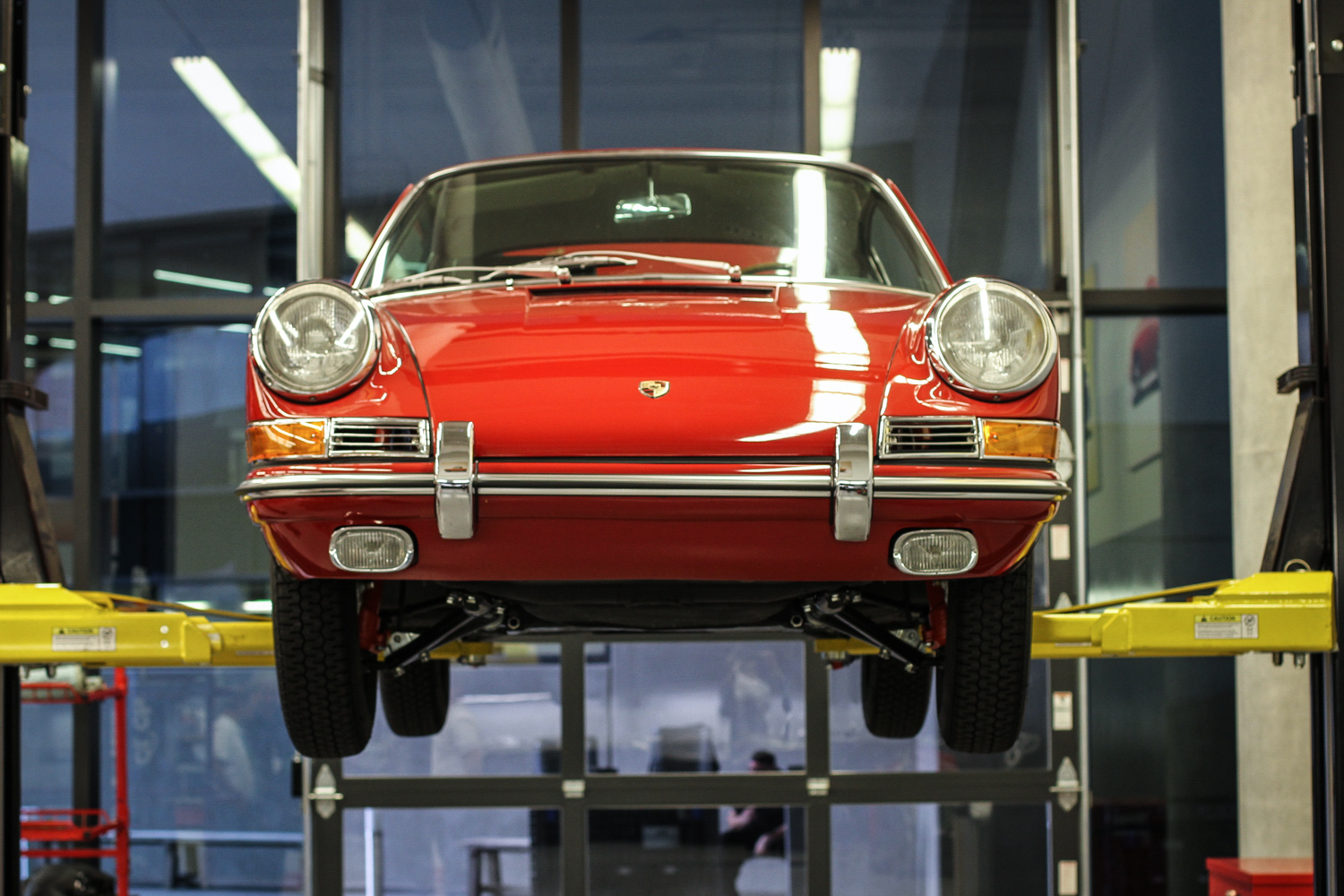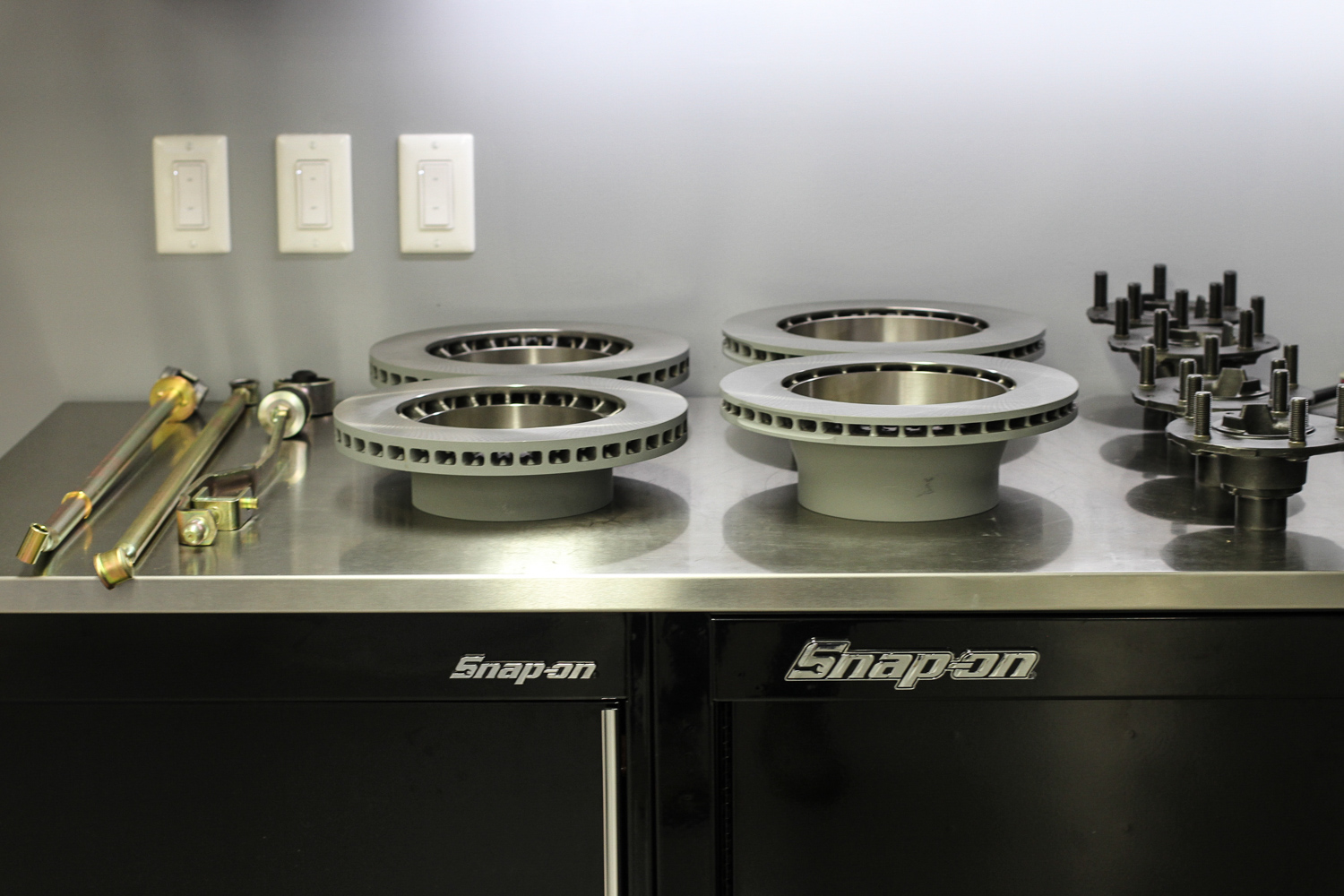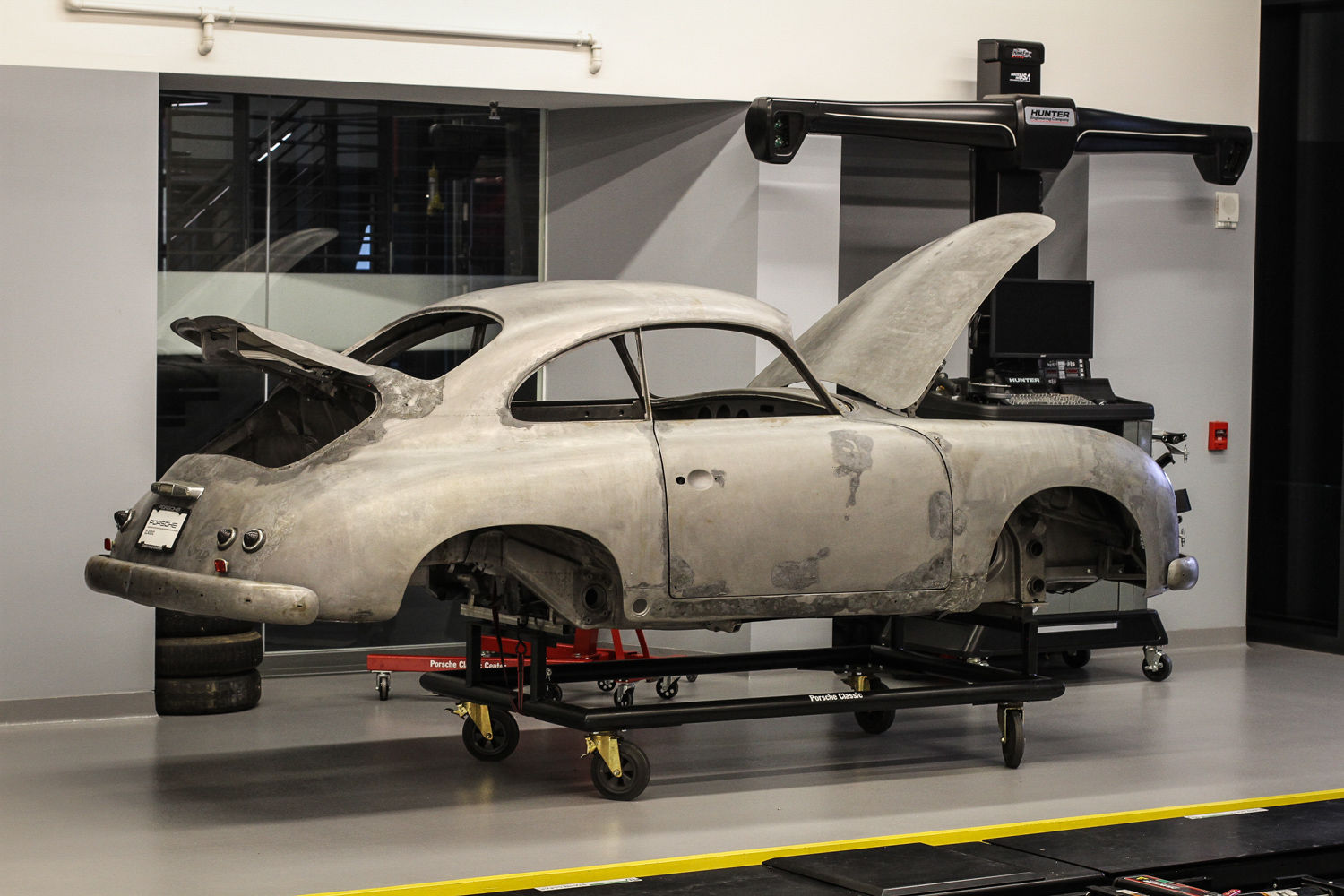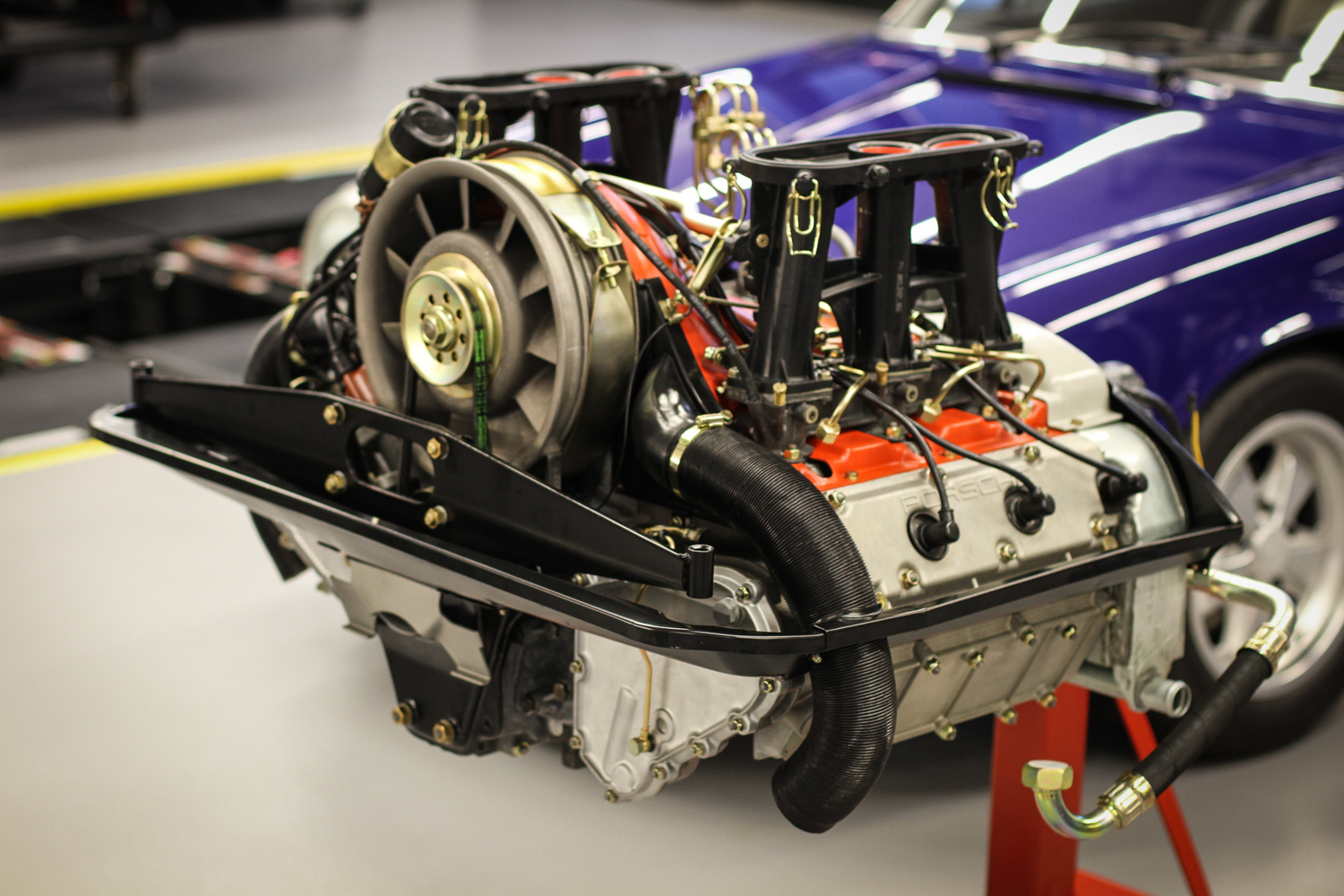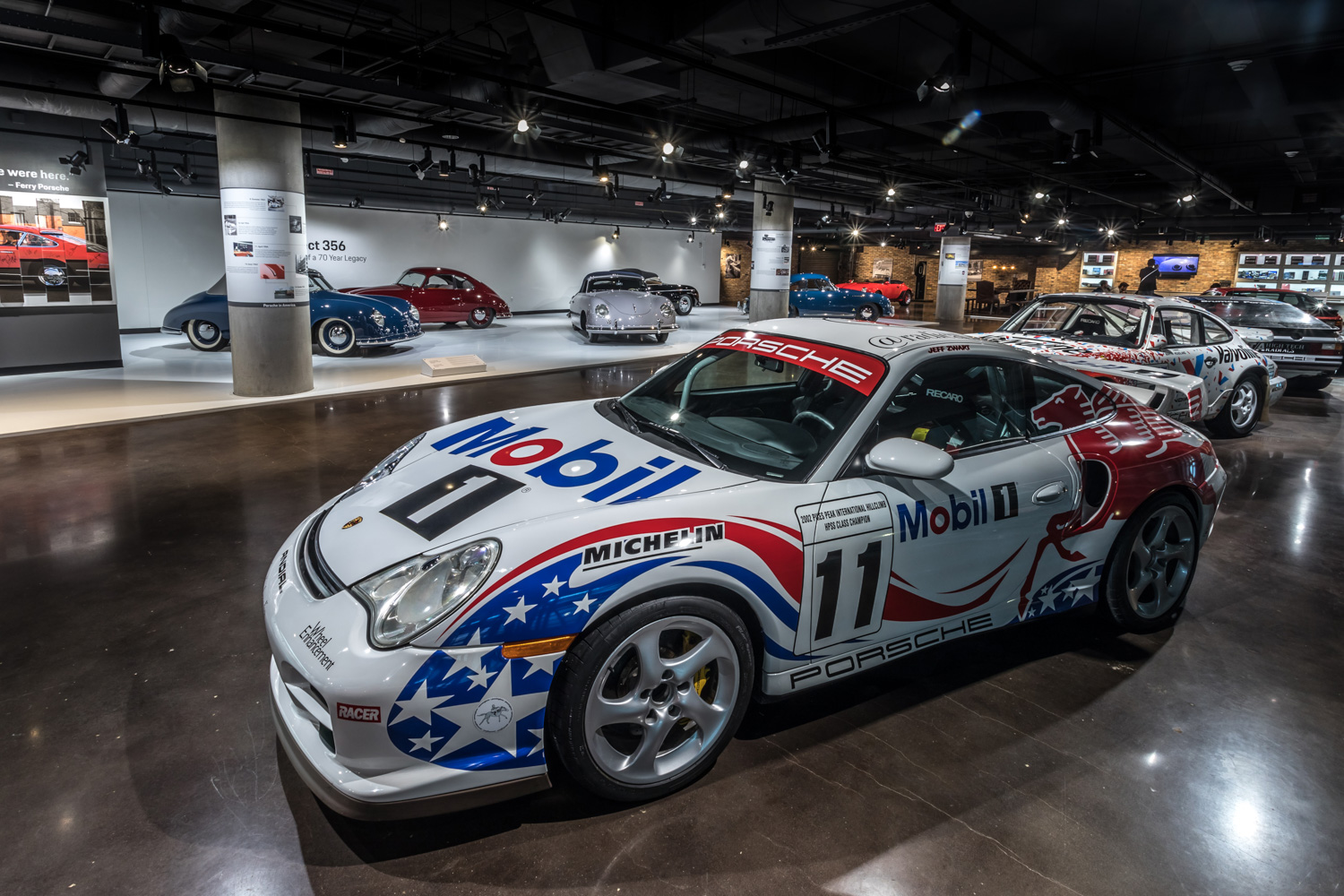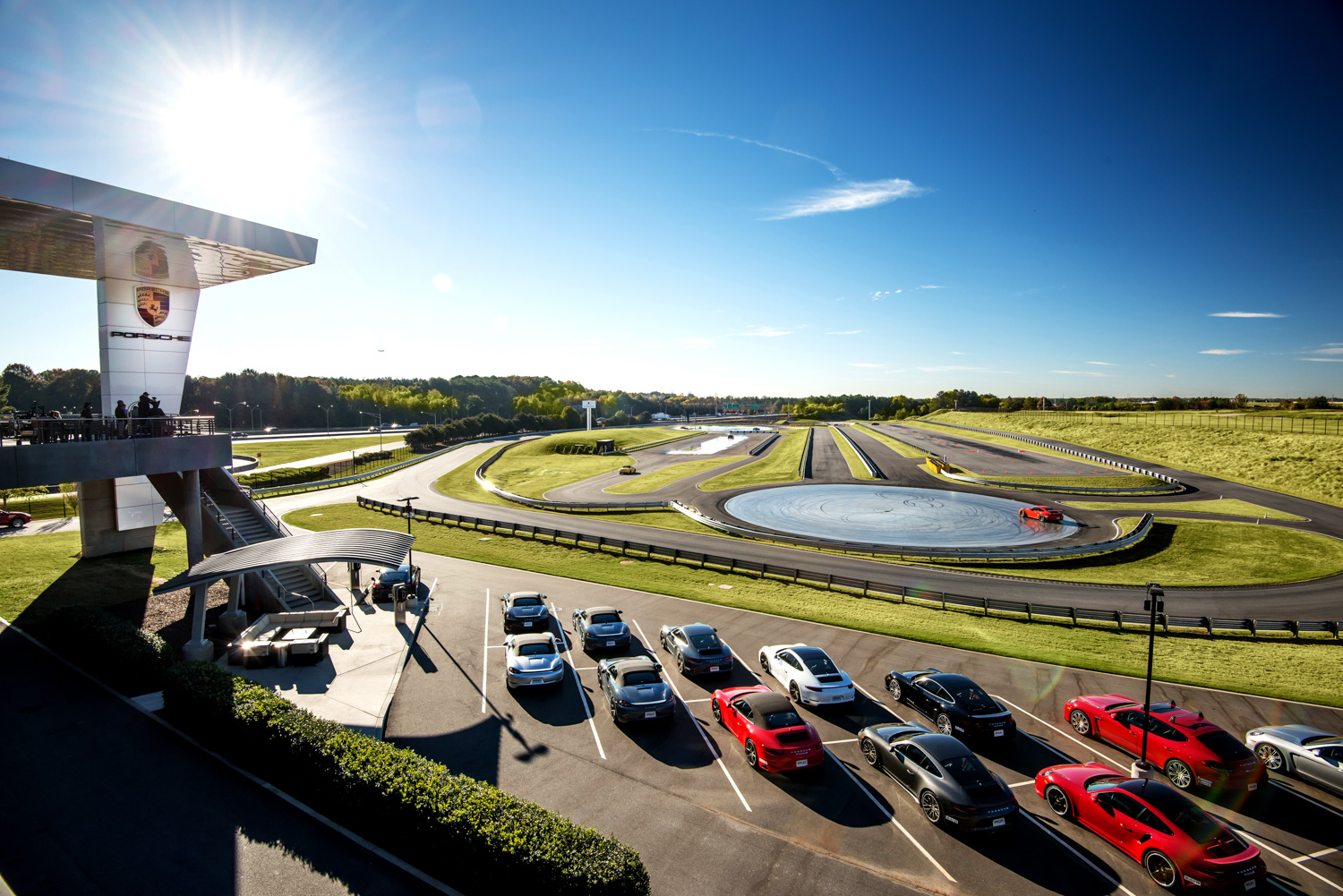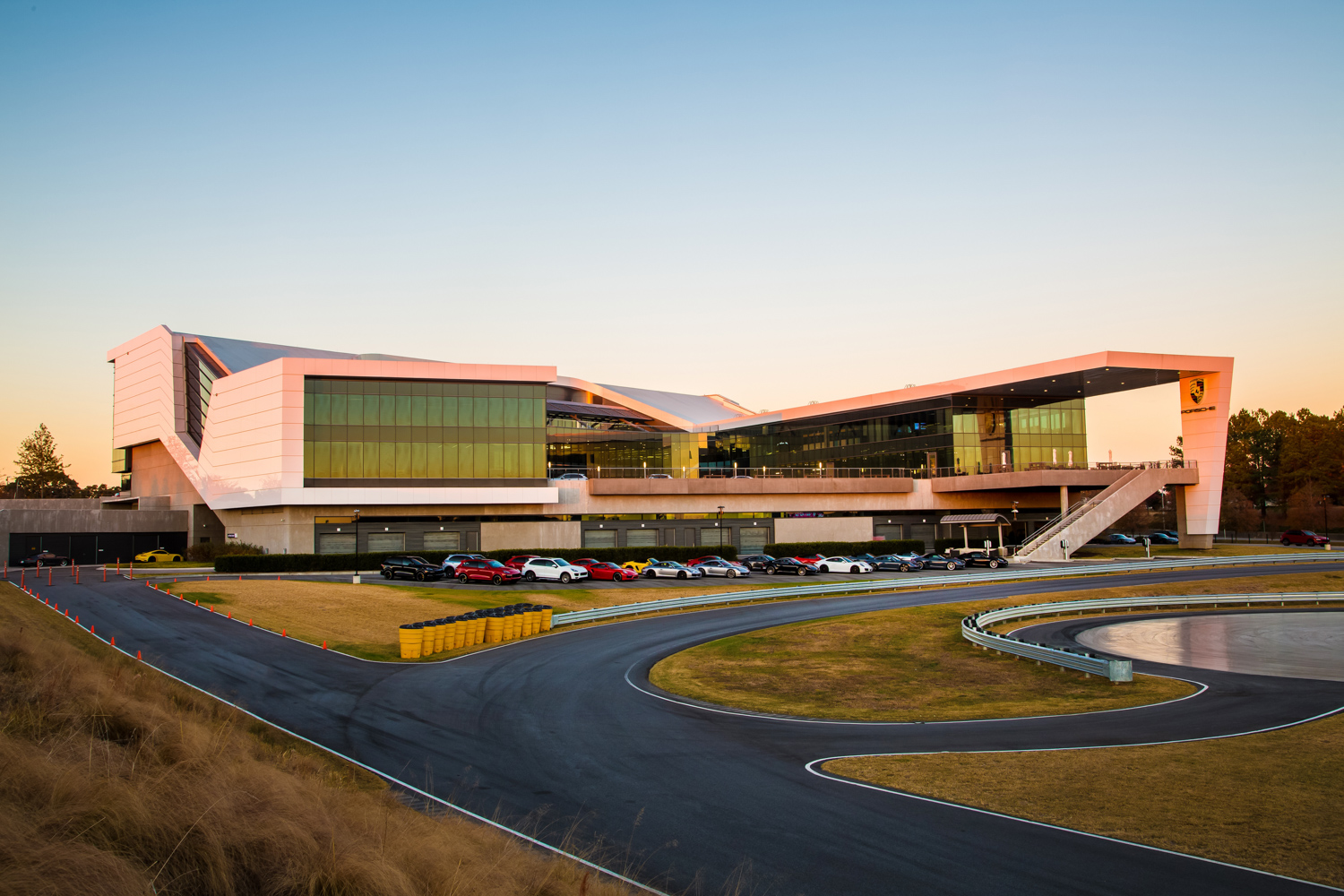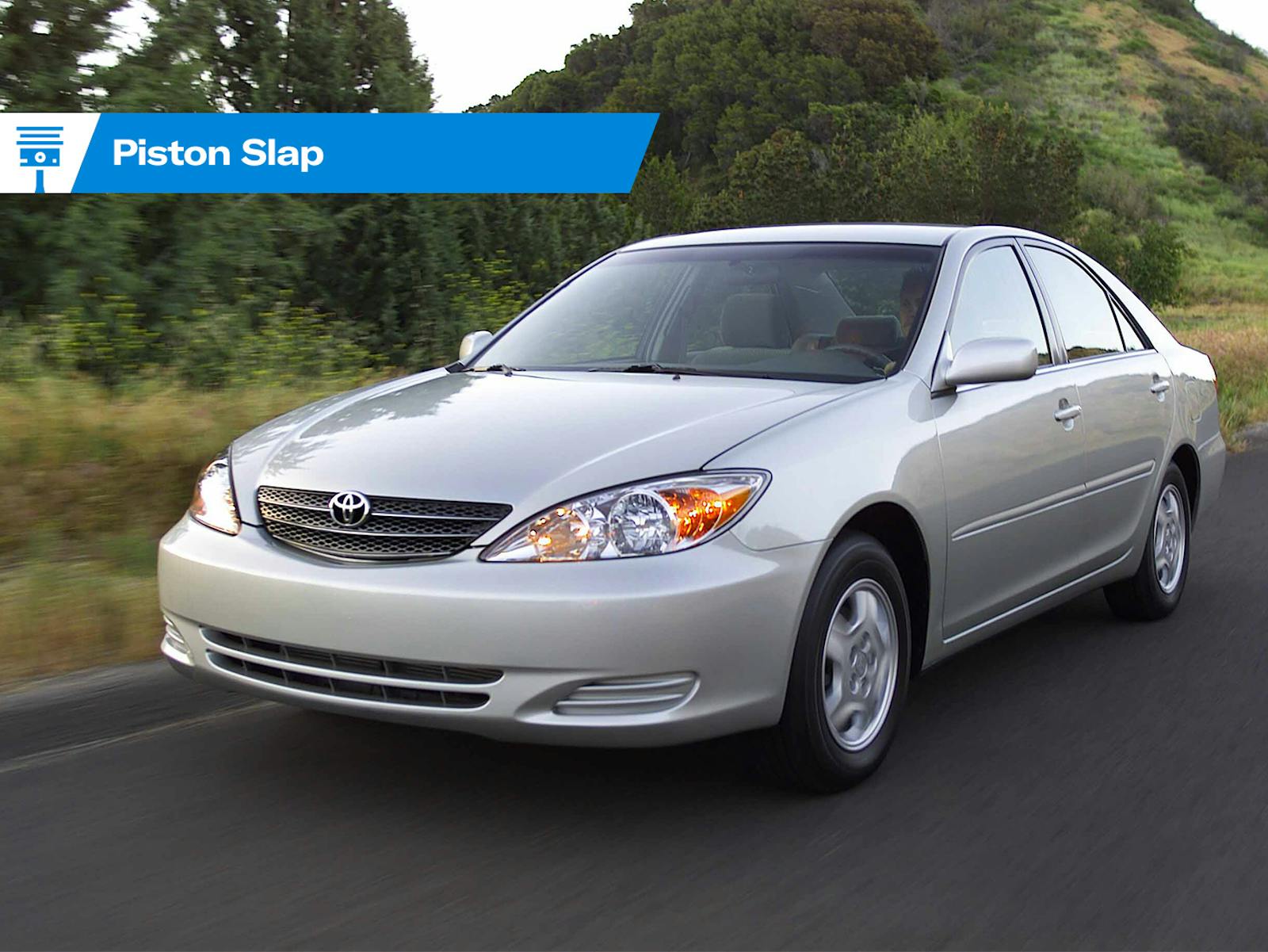Media | Articles
Porsche really wants you to keep your classic on the road
If you want to have your car restored, it certainly makes sense to have it done by the people who built the car in the first place. Factory restorations are nothing new; manufacturers have restored older models for decades, but over the past 10 years or so several major carmakers have really embraced the legions of fans and collectors with more formal factory restoration programs. Among those who offer full factory restorations are Jaguar, Land Rover, Aston Martin, Mercedes-Benz, Ferrari, Lamborghini, BMW, and even Mazda.
Porsche Classic
Porsche will restore your classic car too (for a price, of course). To meet the large and growing demand from U.S. customers, Porsche offers full restoration services at its $100M Porsche Experience Center near the Atlanta International Airport. In addition to the restoration services, Porsche offers tens of thousands of parts and accessories for classic models and classic services at certified dealers.
Why such a big investment? As Porsche Classic director Alexander Fabig puts it, “About 70 percent of all Porsche road cars ever built are still on the road today, and we want to make sure it stays that way.” As for the shop in Atlanta, it is the first and so far only Porsche Classic Factory Restoration Facility outside of Germany.
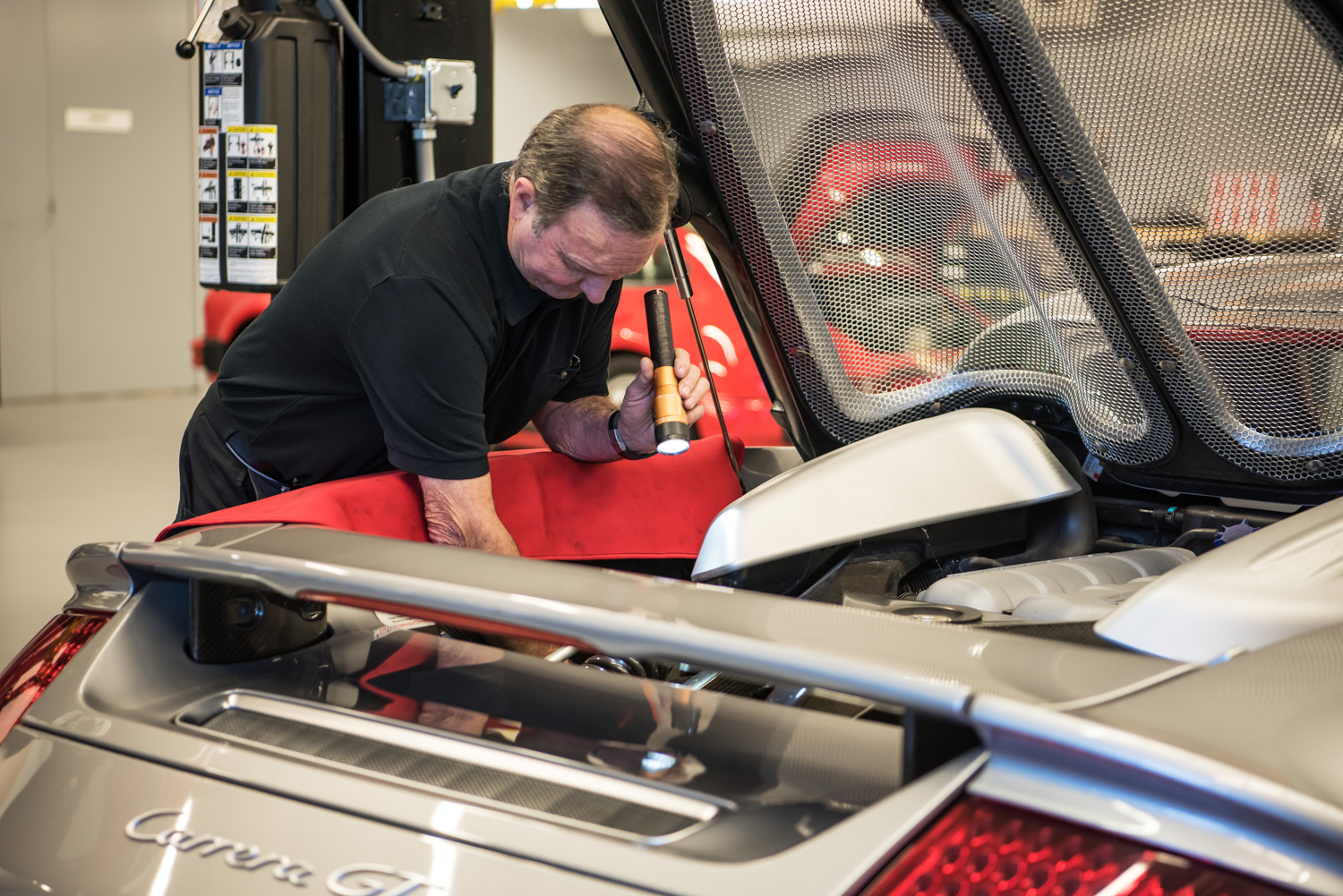

Marketplace
Buy and sell classics with confidence


Ask five people to define a “classic car” and you may get five different answers. For Porsche, a classic is one of the company’s production models built at least 10 years ago, and it estimates that about 30 percent of Porsches in the U.S. (200,000 total, about twice as many as are in Germany) are classics. That means all air-cooled road cars, front-engine transaxle cars, and even the water-cooled 996 and first-gen Boxster are classic cars in Porsche’s book.
The youngest model eligible for Porsche Classic services is the Carrera GT, and Porsche recently showed off what it can do with its first Carrera GT restoration on a fabulous Oak Green car with numerous bespoke features. In 2020, even the first-generation Cayenne will qualify as a classic Porsche.
Factory restoration in Atlanta
At the moment, however, the small but immaculate and state-of-the-art restoration shop at the Porsche Experience Center currently houses Porsches of a much older variety. On lifts there are two red classic 911s that are just as shiny underneath as they are on top. A blue Carrera RS 2.7 sits off to the side, complete aside from the installation of its gleaming freshly restored flat-six engine. At the other end of the shop is the totally stripped-down body shell of a barn find 356A, awaiting total restoration for an American Porsche collector. “It had been in storage for 39 years, but our mechanics got the engine started in about six hours,” says Ray Shaffer, manager of Porsche Classic Factory Restoration North America.



The seven-man team in Atlanta performs full mechanical restorations but still works with the factory restoration program in Stuttgart, which completes the body, interior, and trim work. The body of the 356, for example, needs some patching up and of course paint. Once shipped to Germany, it will go through the same paint line as Porsche’s current models, which means it will benefit from state-of-the-art paint techniques and protection against corrosion.
A full Porsche factory restoration can take up to 2000 hours or more (or around two years), and cost estimates are discussed with the owner before the work starts. “We restore cars back to perfection,” says Porsche Cars North America Klaus Zellmer, so a full restoration is likely to be a staggeringly large expense. But customers can take comfort in knowing that the work is high quality and to exacting standards. That’s not always a guarantee with an independent shop. Porsche Classic can complete around 10 full restorations per year, but about 35 cars requiring more minor restoration work pass through each year. The labor rate is not unreasonable at $155 per hour.
Parts support for vintage Porsches keeps the heritage alive
For less intensive repair work and general maintenance not done at factory facilities, Porsche Classic stocks more than 52,000 spare parts for vintage Porsches, having launched 11,000 since 2013, and on average it releases about 300 parts per year based on data collected through market research and customer surveys. According to Porsche, about 10 percent of its spare parts business is in classic parts.

When asked if Porsche’s new-issue parts are manufactured to “as new” or if they are improved, Zellmer notes that it depends. “We do apply current technology to our classic cars, and there are improvements where it makes sense.”
One example is the airbag sensor for a 964-generation 911. When new, it was a mechanical part with spring-loaded contacts, while the replacements that Porsche sells now look exactly the same as the originals but feature digital contacts. It’s objectively better, and nobody can tell the difference. Another example is the shock absorbers for the 993, which after being discontinued were reworked by Porsche Classic to improve road-holding and handling.
For small, specialized parts for limited-production models, Porsche also embraces 3D printing to produce things like clutch release levers for a 959 or transmission consoles for a 968. Porsche also knows, however, the importance of authenticity to certain enthusiasts and collectors. Brake drums for the 356A were out of production for many years and more readily available 356B drums worked just fine, but for those true sticklers for whom period-correctness is all-important, Porsche reissued the correct earlier-spec drums. Since the Porsche crest has changed subtly over the decades, Porsche even reproduces era-specific badges. From 356 tool bags and 964 Targa roof panels to F-body switchgear and specially formulated motor oil, Porsche has it pretty much all covered.


In addition to supplying parts for DIY-ers and independent specialists, Porsche works with 69 dealerships worldwide, including 10 across the United States and two in Canada, as Porsche Classic Partners. These are essentially factory-authorized service facilities that are specially certified to work on classic models. In order to qualify as a Classic Partner, dealers are required to make a considerable commitment, including having a dedicated space for classic services and a specially trained staff. Porsche Classic Partners can be identified by special flags out front, and there has to be a classic in the dealer’s showroom at all times.
Between an ever-expanding inventory of parts, a growing network of certified service centers, and meticulous full factory restorations, Porsche is developing more and more ways to keep its classic cars on the road, even if it isn’t cheap.
